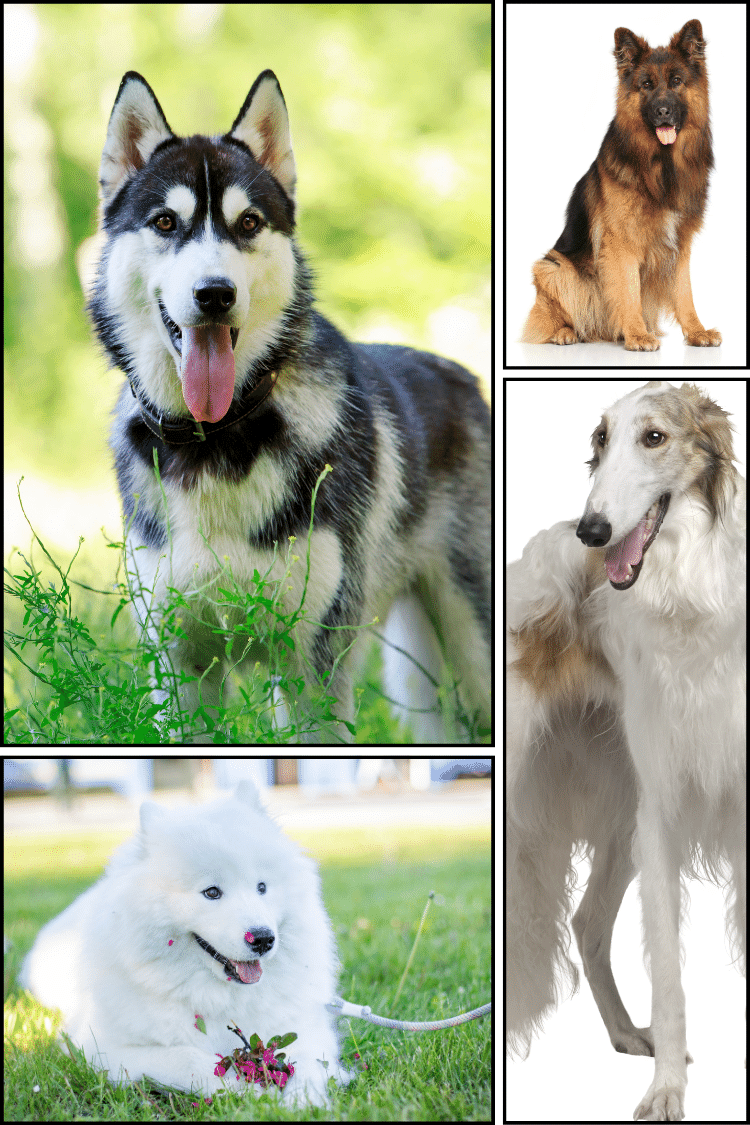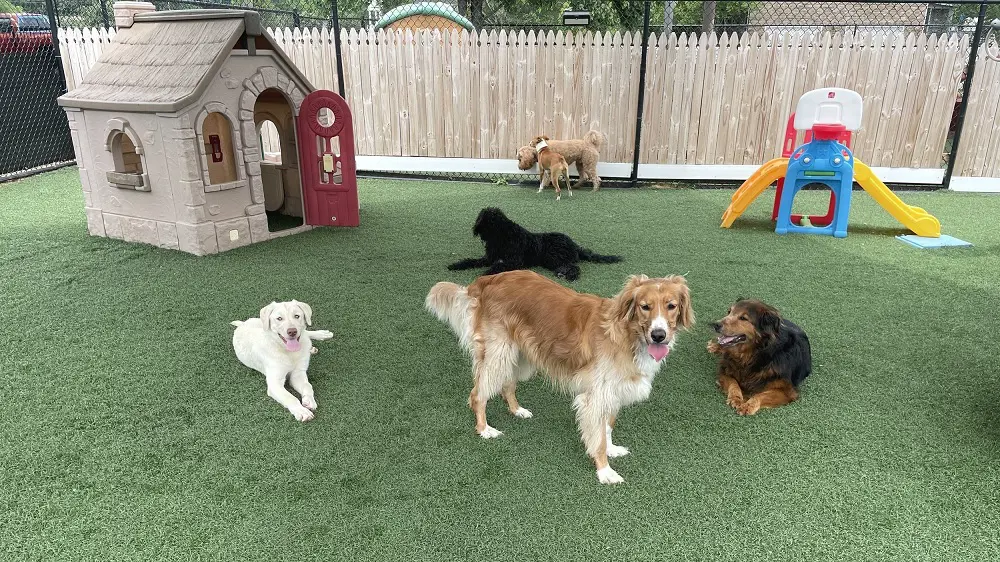Basenji Dog Breed: Characteristics And History
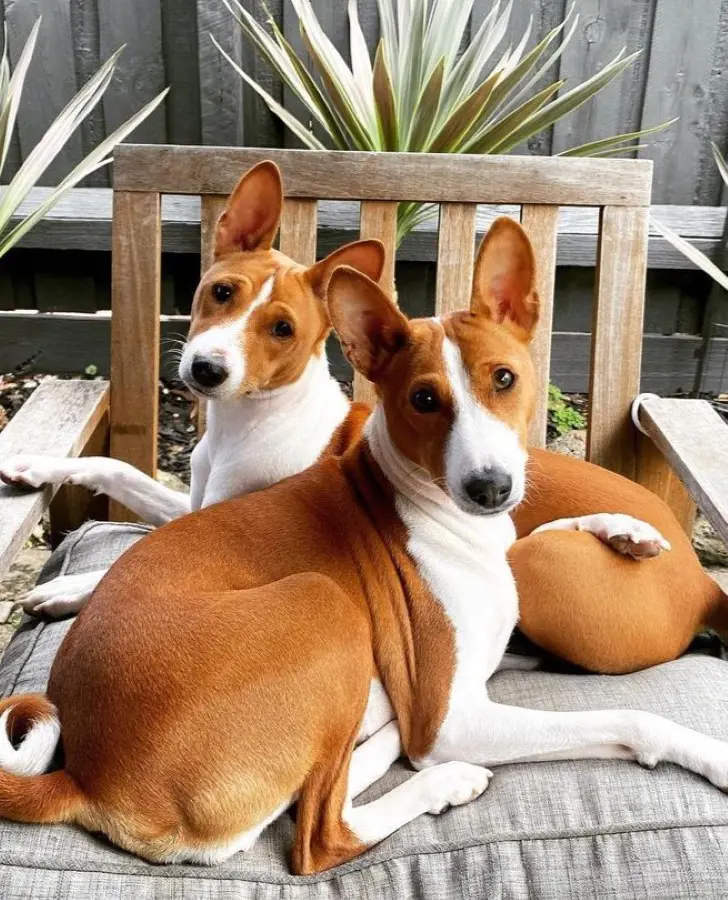
Basenjis are a miniature breed of dog that resemble foxes with their sleek and short coats, pointy ears, and expressive eyes. They are known as "barkless dogs" because they do not bark like other dog breeds.
Instead, they make cute yodeling or howling sounds that are unique and quirky.
Basenjis are adventurous dogs and love exploring the world around them. They are always ready for an adventure, whether it is hiking, camping, or just exploring new parks.
They are the perfect furry companion for those who love to explore the great outdoors. So, let's dive in and learn all about this amazing dog breed.
Overview
| Dog Breed Group | Hound |
| Height | 16 to 17 inches tall at the shoulder |
| Weight | 22 to 24 pounds |
| Lifespan | 10 to 12 years |
| Colors | Black, Red, White |
| Coat Length | Short |
| Drool Level | Low |
| Pattern | Bicolor, Brindle, Tricolor |
| Shedding | Occasional |
What Is A Basenji Dog?

The Basenji is a small to medium-sized dog breed known for its unique characteristics and ancient origins. Basenjis have independent spirits and unique vocalizations, making them a breed that requires experienced and patient owners.
They can be a rewarding addition to a household for those who appreciate their distinctive qualities. Despite their small numbers, Basenjis have maintained their unique traits and are cherished by dog enthusiasts as both companions and show dogs.
History and Origin of Basenji Dog Breed
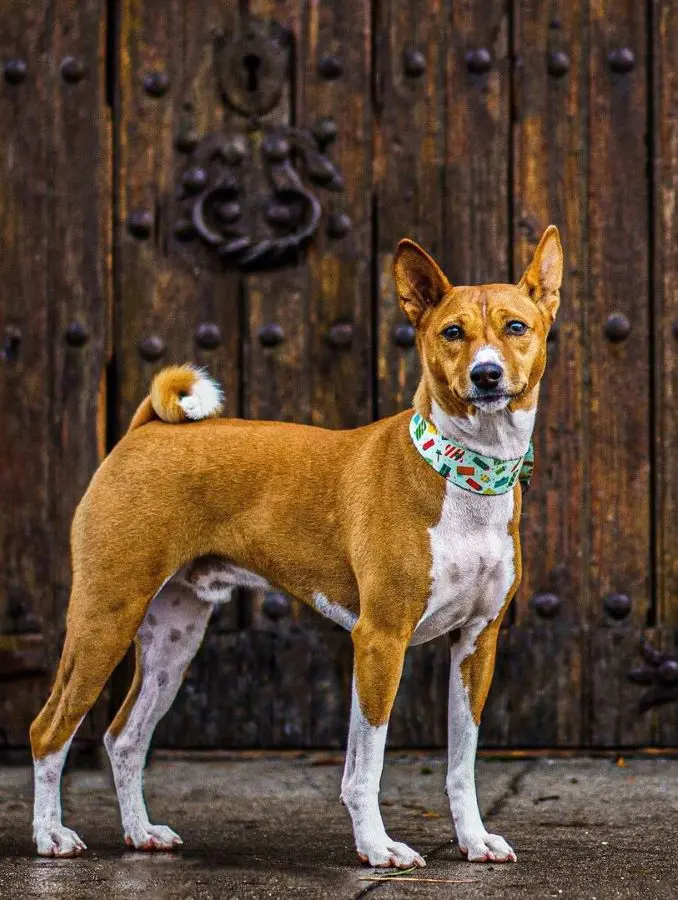
The Basenji is an ancient breed that traces its origins to Central Africa, particularly in the region that includes modern-day Congo, Sudan, and South Sudan. The breed was highly regarded by ancient African tribes, such as the Azande and Mangbetu people, who used them for hunting and companionship.
They were originally used by native tribes for hunting small game, such as birds and small mammals, due to their keen senses and speed. European explorers and colonists brought Basenjis to Europe in the early 20th century.
In the 1930s, Basenjis gained popularity in the United States and other parts of the world. They were recognized by the American Kennel Club (AKC) in 1943.
Basenji Dog Breed Physical Appearance
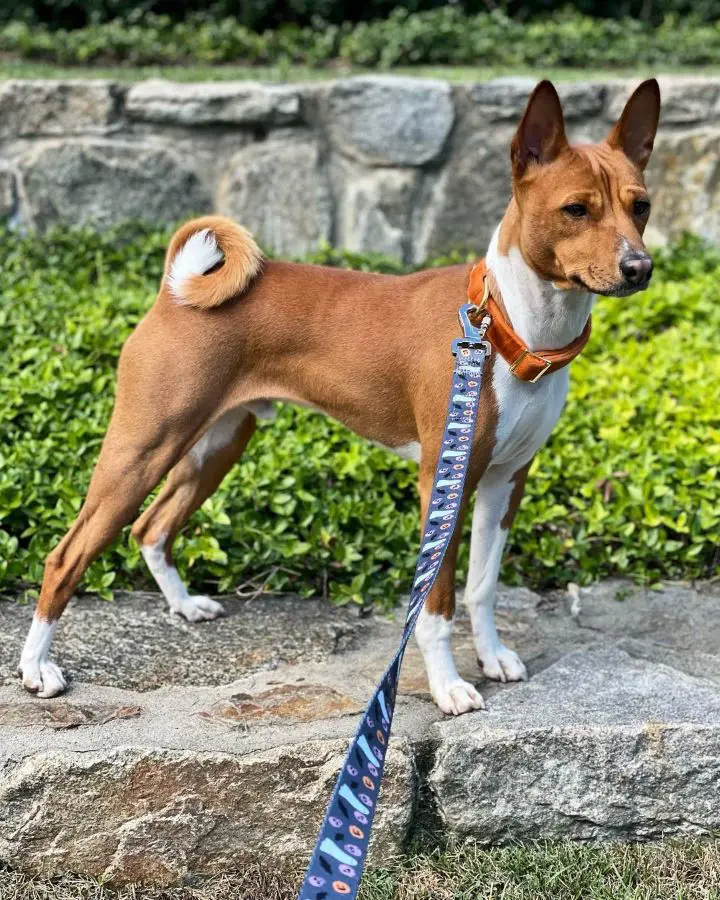
The Basenji is a distinct and elegant breed with several unique physical characteristics. Some of the details on their appearance is explained below.
Height and Weight
Basenjis are small to medium-sized dogs. They typically stand about 16 to 17 inches (41 to 43 cm) at the shoulder. Similarly, they weigh between 22 to 24 pounds (10 to 11 kg).
Coat
Basenjis have a short, fine coat that lies close to the body. They often have white feet, chest, and a white-tipped tail.
Colors
- Red
- Black
- Tricolor (Black, Tan, and White)
- Brindle
- Black and White
- Black and Tan
- Chestnut Red
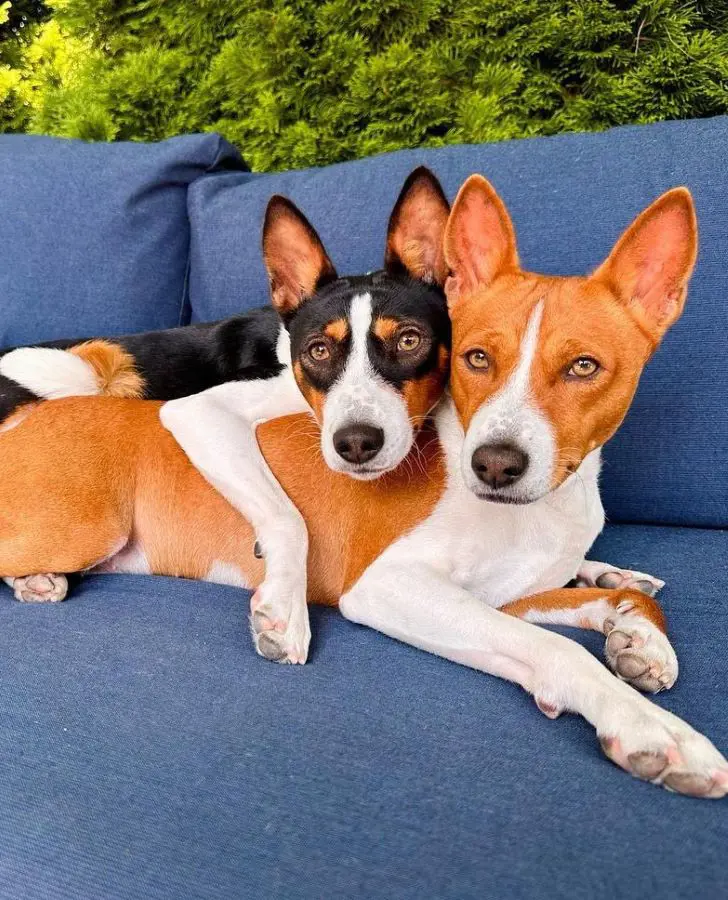
Ears
One of the most distinctive features of Basenjis is their upright, pointed ears. The ears are set high on the head and stand erect, giving the dog an alert and expressive appearance.
Body
They have a compact well-balanced and and muscular athletic body with a deep chest and a level back. The ribs are well-sprung, providing ample lung capacity for endurance.
Basenji Dog Temperament and Personality
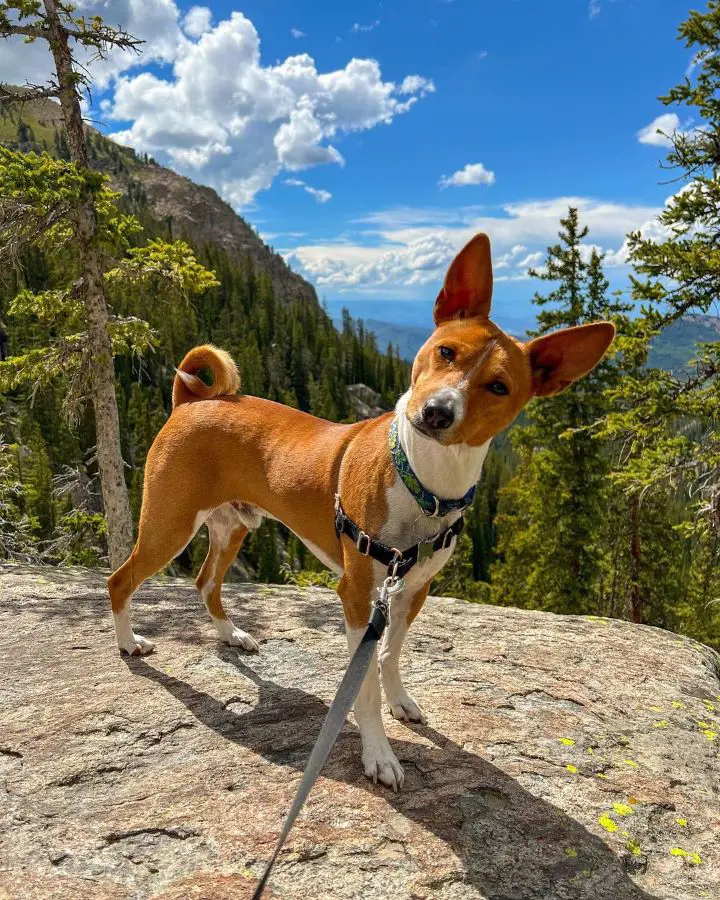
Understanding their characteristics is important for potential owners to ensure a good match with their lifestyle and expectations. Here are some key aspects of the Basenji's temperament and personality.
Independent
Basenjis often do things on their terms. They don't always have a strong desire to please their owners like some other breeds, which can sometimes be mistaken for stubbornness.
Intelligent
Basenjis are intelligent dogs, but their independent nature can sometimes make them appear aloof. Training may require patience and consistency.
Alert and curious
Basenjis have a strong instinct to watch their environment. They are often alert and can make good watchdogs, as they tend to be wary of strangers and will alert their owners to anything unusual.
Also, Basenjis are highly curious dogs. They are always exploring their surroundings and are intrigued by new sights and smells. This curiosity can lead them into mischief if not properly supervised.
Energetic
Basenjis are active and energetic dogs. They have a lot of stamina and enjoy running and playing.
Daily exercise is essential to keep them physically and mentally stimulated. Without enough physical activity, they may become bored and engage in destructive behaviors.
Playful and Loyal
While Basenjis may have an independent streak, they are known to be playful and enjoy interactive games with their owners. They have a strong prey drive and may enjoy chasing toys or playing fetch.
They are deeply loyal dog breeds and affectionate with their families. They form strong bonds with their owners and can be quite loving and attentive.
Reserved with strangers
Basenjis can be reserved and aloof with strangers. They are generally not aggressive but may take time to warm up to new people. Early socialization is important to help them become more comfortable around unfamiliar individuals.
How To Care For A Basenji Dog?
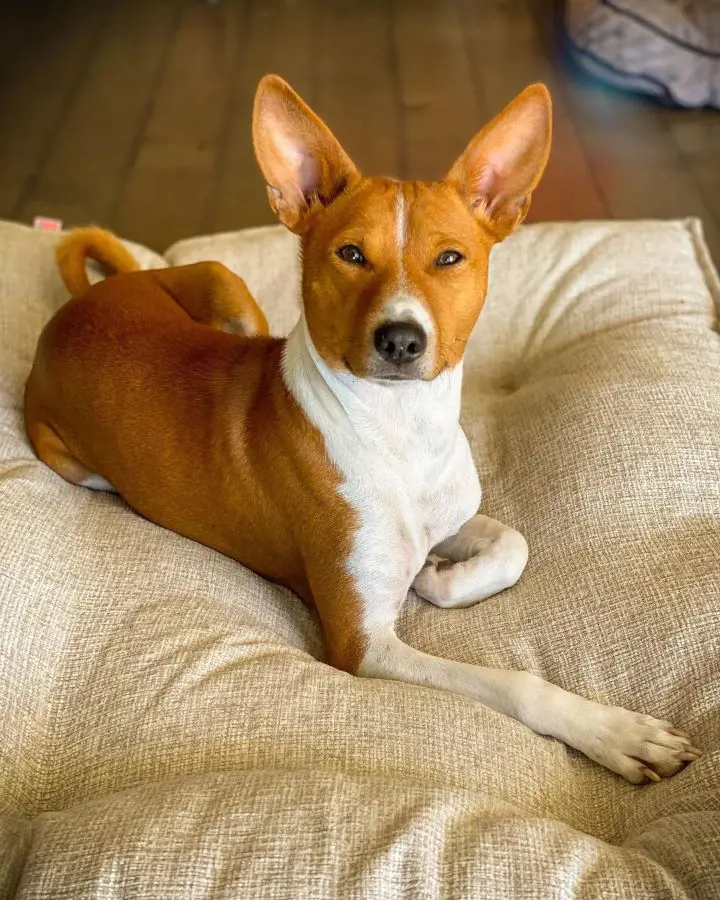
Basenjis can be considered low maintenance in terms of grooming and cleanliness. They are known for their clean habits and are often easy to housetrain. They tend to be naturally clean dogs.
However, they have moderate to high maintenance requirements in areas such as exercise, training, socialization, and mental stimulation. Before bringing a Basenji into your home, it's essential to be prepared to meet their specific needs to ensure they lead a happy and healthy life.
Food and Dietary Requirements
Basenjis have unique dietary needs and sensitivities. They should be fed high-quality dog food that is specifically formulated for their size, age, and activity level. Look for dog food that lists meat as the first ingredient and does not contain fillers or artificial additives.
They are carnivores, so their diet should be rich in high-quality animal protein. Look for dog food that contains real meat sources like chicken, beef, or fish.
Basenjis have a lower tolerance for grains and carbohydrates compared to other dog breeds. Avoid dog food that contains wheat, corn, soy, or other grains as the main ingredients. Instead, opt for grain-free or limited-ingredient dog food options.
Grooming Tips
Regular grooming sessions provide an excellent opportunity to bond with your Basenji and monitor their overall health and well-being.
While Basenjis are relatively low-maintenance in terms of grooming, some owners may opt for occasional professional grooming to ensure their dog looks and feels their best. Here are some tips to keep their coat and overall appearance healthy and tidy.
-
Brushing
Despite their short coat, Basenjis can benefit from regular brushing to remove loose hair, distribute natural oils, and keep their skin healthy. Use a soft-bristle brush or a grooming mitt to brush your Basenji once a week.
-
Bathing
Basenjis are generally clean dogs and don't require frequent baths. Only bathe them when they become visibly dirty or have a strong odor. Use a mild dog shampoo, and be sure to rinse thoroughly to remove all soap residue.
-
Nails
Trim your Basenji's nails as needed, typically every few weeks. Long nails can cause discomfort and affect their gait. Use a dog nail clipper or grinder, or ask your vet or a professional groomer for assistance if you're unsure.
-
Oral Hygiene
Dental care is essential for all dogs, including Basenjis. Brush your Basenji's teeth regularly with a dog-specific toothbrush and toothpaste to prevent dental issues.
Training And Physical Activity
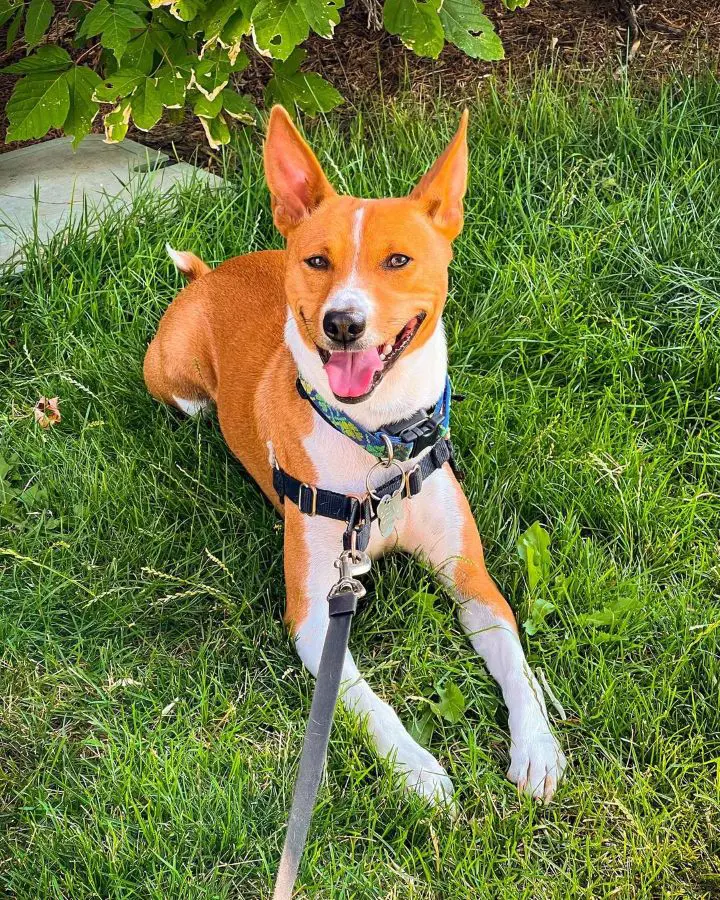
Due to their active and independent nature, training and physical activity are essential aspects of caring for a Basenji dog. Proper training and exercise help channel their energy and intelligence in a positive way.
Basenjis should be taken for a brisk walk or jog every day to help burn off their energy. They have a high prey drive and can be prone to chasing after small animals, so it's important to keep them on a leash or in a secure and fenced area.
They can be independent and stubborn at times, so early and consistent obedience training is essential. Use positive reinforcement techniques, such as treats and praise, to motivate them. Keep training sessions short and engaging to maintain their interest.
Furthermore, Basenji dogs excel in agility training due to their athleticism and natural agility. Consider enrolling them in agility classes or setting up an agility course in your backyard. This not only provides physical exercise but also challenges their problem-solving skills.
Health Issues In A Basenji Dog
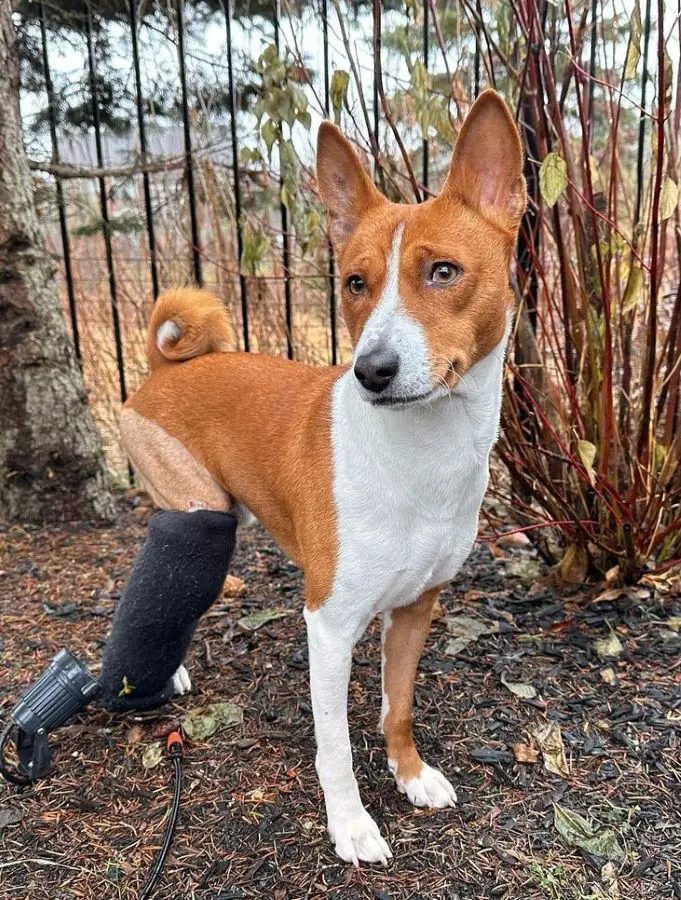
Basenji dogs are generally a healthy breed, but like all dogs, they can be prone to certain common and serious health issues. It's essential for Basenji owners to be aware of these potential health concerns and to work closely with a veterinarian to ensure their dog's well-being.
Common Health Problems
- Hip Dysplasia
- Fanconi Syndrome
- Hypothyroidism
- Progressive Retinal Atrophy (PRA)
- Autoimmune Thyroiditis
Serious Health Problems
- Pyruvate Kinase Deficiency (PKD)
- Hemolytic Anemia
- Inflammatory Bowel Disease (IBD)
- Cataracts
- Intestinal Problems
- Cancer
Average Lifespan of Basenji Dog
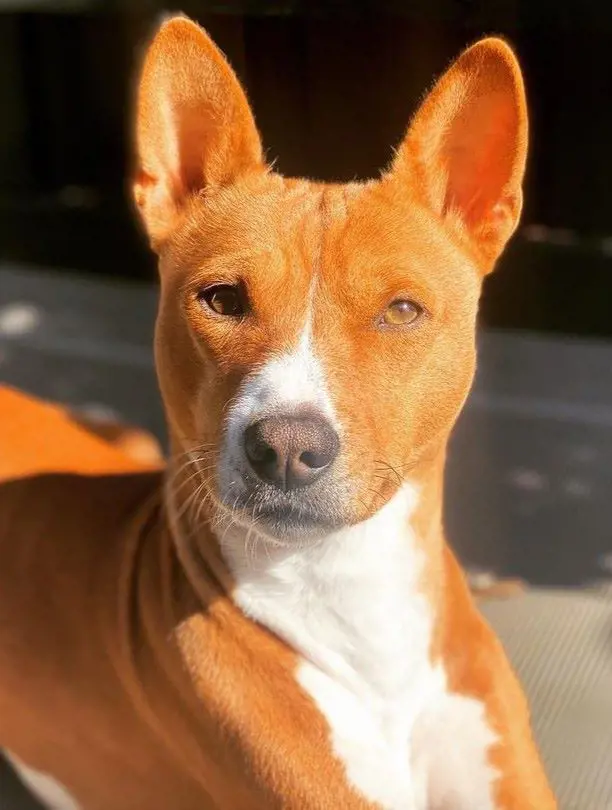
Basenji dogs typically live about 10 to 12 years. They can inherit certain genetic conditions that may impact their lifespan. Responsible breeding practices can help minimize the risk of these conditions.
Providing your Basenji with a balanced diet, regular exercise, routine veterinary care, and a safe and loving home environment can contribute to a longer and healthier life. It's also essential to be aware of and manage any breed-specific health concerns, as early detection and treatment can extend your Basenji's lifespan.
Compatible Living Environment For Basenji
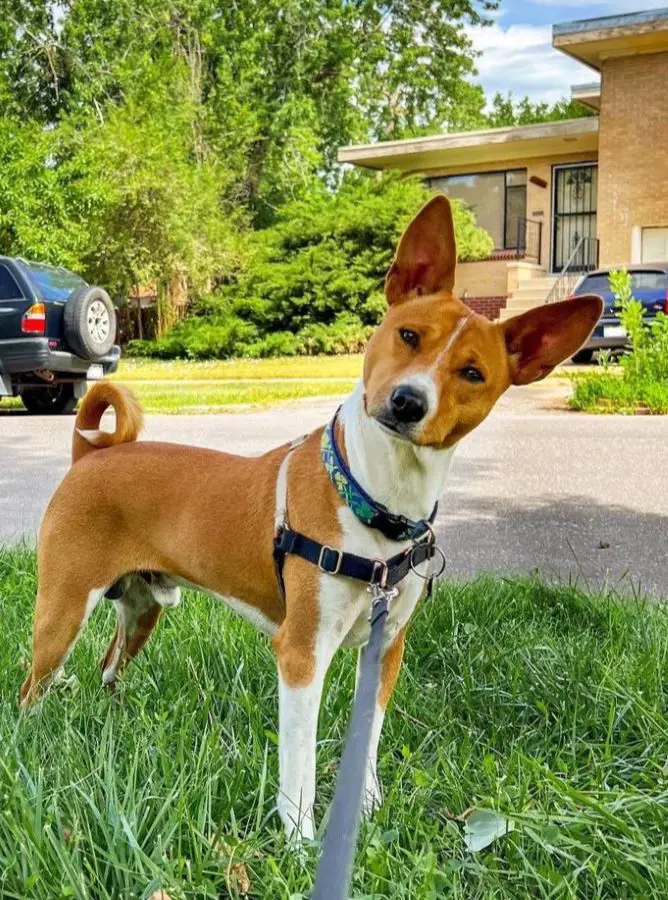
A compatible living environment for a Basenji includes a secure and well-maintained space, daily exercise, mental stimulation, proper training, and lots of love and attention.
They can live comfortably in a small apartment as long as they get enough space to move around and burn off their energy. A house with a secure, fenced yard would be ideal, allowing them to run and play freely.
They are sensitive to extreme temperatures. They tend to be more comfortable in moderate climates, avoiding extreme heat or cold. If you live in an area with extreme temperatures, it's essential to provide them with appropriate shelter and temperature control indoors.
How Much Does A Basenji Dog Cost?

The cost of Basenji puppies can vary from $800 to $2,000 depending on various factors such as the breeder's reputation, the dog's lineage, and geographical location.
Basenjis are relatively rare dogs, like Keeshonds and Borzois. This rarity contributes to the higher price range for this breed. Many breeders can take advantage of this fact and ask for higher prices of up to $4,500.
Top Lists



